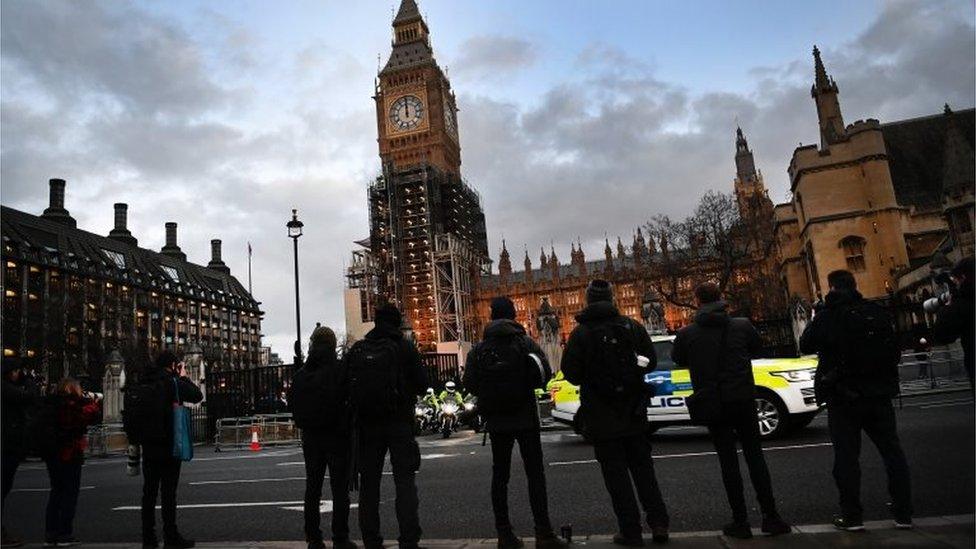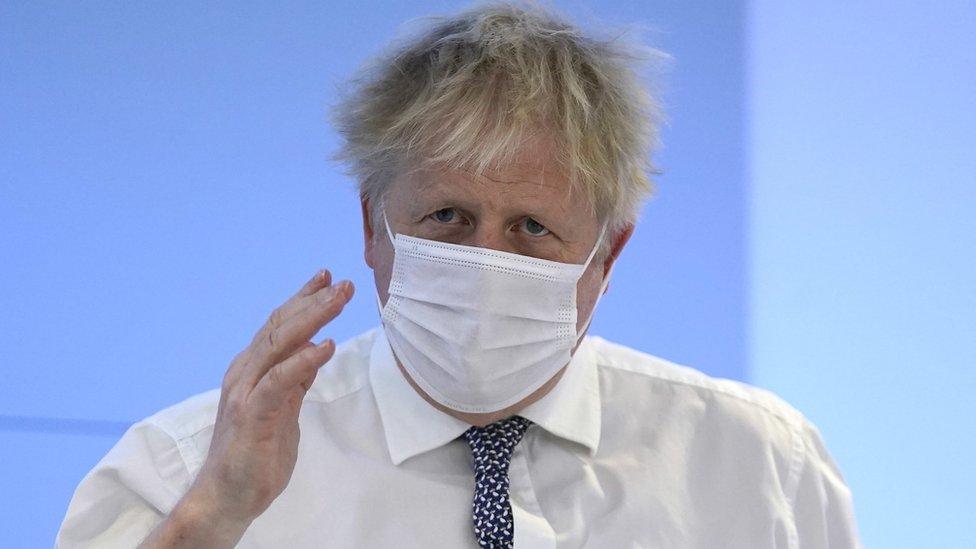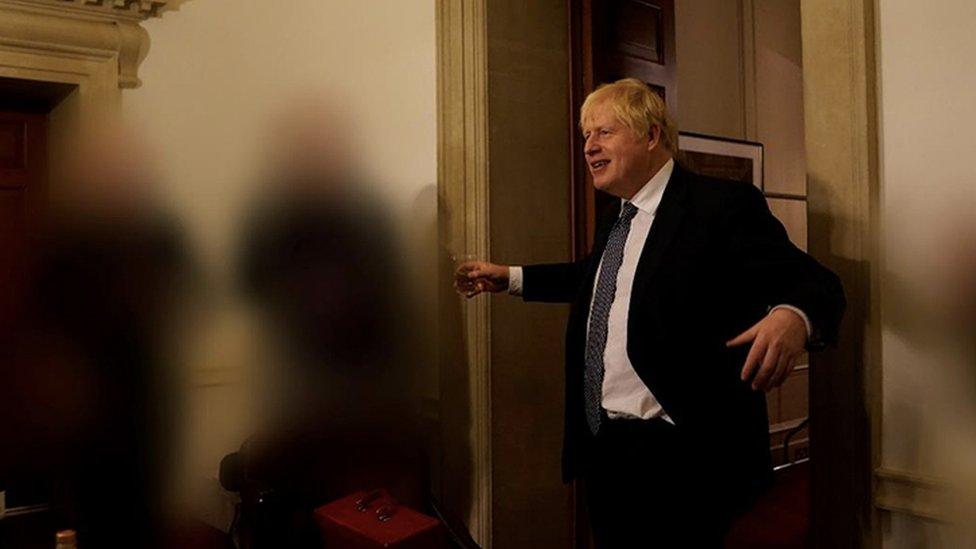MP blackmail claims: Tory William Wragg to meet police
- Published
MPs should report intimidation tactics to the police, says William Wragg
A Conservative backbencher who accused Downing Street of trying to "blackmail" MPs seeking to oust Boris Johnson is to meet police to discuss his allegations.
William Wragg said he will be speaking to a Met Police detective in the House of Commons early next week, after requesting a meeting with the force.
The MP, who wants the prime minister to quit, said he wanted to leave any probe to "experts" rather than No 10.
Downing Street said it had not seen any proof of the behaviour he alleges.
A spokesman said on Friday they were not investigating the allegations but would look "carefully" at any evidence presented to them.
Chris Bryant, who is chairman of the Commons Committee on Standards, said he had spoken to about a dozen Tory MPs in the past few days who had made similar allegations of whips threatening to withdraw funding for their constituencies, including for campaigning and infrastructure such as bypasses and schools.
"I've even heard MPs alleging that the prime minister himself has been doing this," he told BBC Radio 4's Today programme.
He described the alleged behaviour as "misconduct in public office" and said it was a matter for the police.
The Labour MP added that he believed this had happened much more over the past 10 years and there had been "a steady erosion of standards in the way we allocate funding".
On Thursday Boris Johnson said he had seen no evidence to support Mr Wragg's allegations.
It comes as Tory whips and No 10 try to shore up support for the prime minster ahead of civil servant Sue Gray's report into a series of Downing Street lockdown parties which is expected next week.
Mr Johnson has been facing down an attempt from some Conservative MPs to oust him since he admitted attending a drinks event at No 10 during the first lockdown, although he says he believed it was a work event.
So far six Tory MPs have publicly declared no confidence in the PM, but more are thought to have submitted letters to Sir Graham Brady, chairman of the backbench 1922 committee, who organises Tory leadership contests.
Under party rules, if 54 letters are submitted a no confidence vote is triggered which could result in a leadership election.
Tory MP David Davis to PM: In the name of God, go
Mr Wragg, MP for Hazel Grove in Greater Manchester and chairman of the Commons Public Administration and Constitutional Affairs Committee, first raised his concerns on Thursday and advised colleagues who feel threatened to go to the police.
He told the committee that Tory whips - the MPs in charge of party discipline - had threatened those suspected of wanting Mr Johnson out with the removal of government investment in their constituencies.
He also said he had received reports of government ministers, advisers and staff at No 10 "encouraging the publication of stories in the press seeking to embarrass" those suspected of lacking confidence in the prime minister.
Mr Wragg, who is also vice-chairman of the 1922 committee, claimed the reports "would seem to constitute blackmail" - and as well as contacting police, affected MPs should contact the Commons Speaker.
He told the Daily Telegraph he would outline "several" examples of bullying and intimidation when he speaks to police.
"I stand by what I have said. No amount of gas-lighting will change that," he said.
"The offer of No 10 to investigate is kind but I shall leave it to the experts."
A Met Police spokesman said: "As with any such allegations, should a criminal offence be reported to the Met, it would be considered."

Downing Street party row
REALITY CHECK: The Covid rules when Downing Street parties were held
PROFILE: What is Sue Gray investigating?
TIMELINE: Alleged government lockdown gatherings

After Mr Wragg made his allegations on Thursday, Christian Wakeford - who this week defected from the Conservatives to the Labour Party - said he was threatened he would not get a high school in his constituency if he did not vote in a certain way.
Business Secretary Kwasi Kwarteng later questioned Mr Wakeford's claims, saying he had "never heard of anything like this" since becoming an MP but if it had happened it would be "very seriously regarded" by the government.
Conservative MP Tom Tugendhat, who is chairman of the Foreign Affairs Committee, also said he had not experienced or been told about any instances of blackmail, despite voting against the government on several occasions.
He told BBC Breakfast his relationship with whips had always been "productive".

WHICH COUNTRY HAS 400 WORDS FOR SNOW? Wintry words from around the world
TAKE A BREATH: Focusing on your breathing can reduce anxiety and improve concentration!

Related topics
- Published20 January 2022
- Published21 January 2022

- Published21 January 2022

- Published25 May 2022
